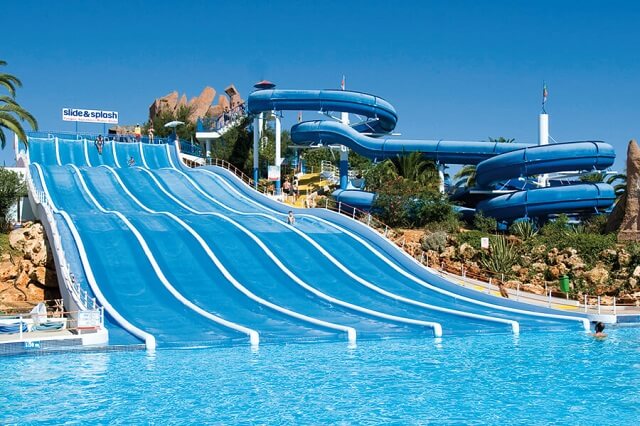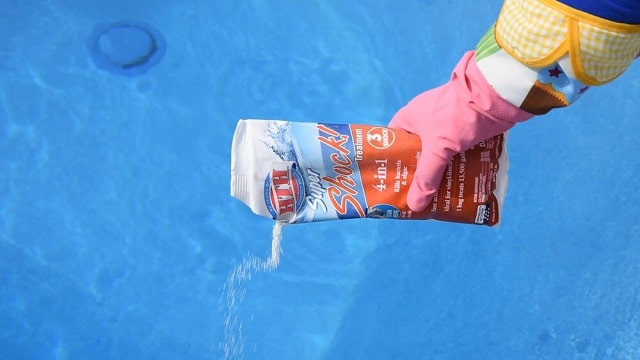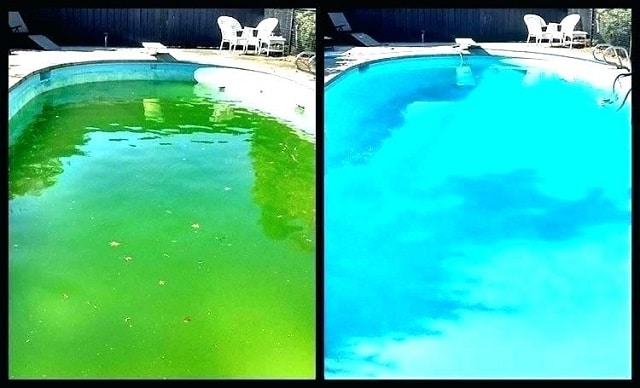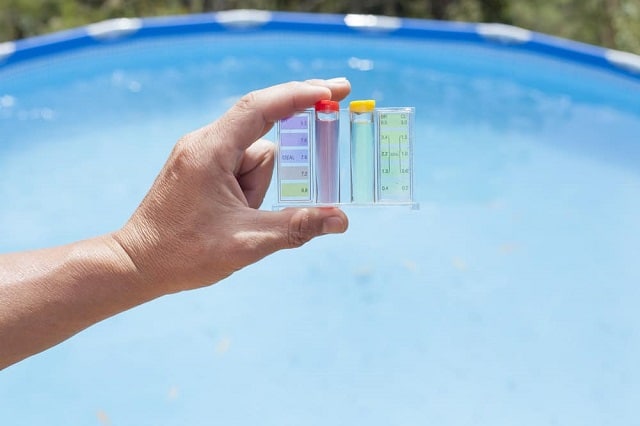Once the hot weather arrives, swimming pools across the country are getting ready for us. However, the pools need to be prepared and shocked before they can go on the water. And also we can’t go straight into the pool when Shocking is done.

Shocking is an essential aspect of having a clean swimming pool, but it also requires using some massive chemicals, such as chlorine. It’s natural to be curious what you’ll find when you go swimming after all the work.
What Exactly is “Shocking” The Pool?

If you’ve had the pleasure of swimming in swimming pools, you’ve likely encountered the term at times but you’re certainly not born with the knowledge of the specifics of this subject. It’s “the method of adding chemicals into the pool to make the water ideal composition for non-chlorine or chlorine alternatives to perform best,”
Why Shocking the Pool is Necessary?

The aim of shocks to the pool’s water is to increase the amount of “free chlorine” in the pool until it reaches a level where bacteria and algae are destroyed. (Free chlorine means chlorine that isn’t yet neutralized harmful gunk within the swimming pool.)
There are several chemicals that could be used to make a pool shock such as calcium hypochlorite and lithium dichlor, hypochlorite and potassium peroxymonosulfate.
When it is Safe to Swim After Shocking the Pool is done?

It is generally recommended that you wait for up to 24 hours before jumping into a pool after been shocked, based upon the dimensions of your pool.
If you’re responsible for maintaining the pool, it’s better to test the pH and chlorine levels to ensure that they’re within the proper level before anyone enters the pool. (A suitable chlorine level is between 1.0 to 4.0 parts per million, while the pH should range somewhere between 7.2 and 7.8.)

What Happens if Swim Immediately After Pool is Shocked

There are some possible problems:
- Chlorine reacts with water and produce the acid.
- Breathing in or any eye or skin contact with Chlorine may have different effect.
- Dry skin is inevitable.
- When you have a skin problem such as eczema or psoriasis, this could increase the condition.
- Symptoms such as burning, redness as well as blisters, pain or itchiness may occur.
However, the water could cause problems for your eyes and lungs. Eye effects could include redness, pain, blurred vision as well as watery eyes. The effects of inhalation are usually the most severe, like shortness of breathe, chest tightness wheezing, and fluids in the lung.
If you accidentally drink pool water, you may feel nauseated.

Fortunately, the consequences are usually reversible. If you go immediately after shocking the pool, you start to feel signs. So, it’s very important to get out of pool immediately. And get fresh air. Remove any clothing that is exposed and wash the affected areas thoroughly using water and soap. If you wear contact lenses, remove and then pitch them before washing your eyes with saline solutions.
When your skin is uncomfortable after cleansing the dirt, it is recommended to use a cream or moisturizer. If your symptoms still persists or having difficulty breathing, it is recommended to see doctor.

It’s not easy to wait for jumping into the pool however it’s not worth risking your health.
Read Also Beauty is Pain - Painful Things Female Do Regularly to Look Gorgeous


